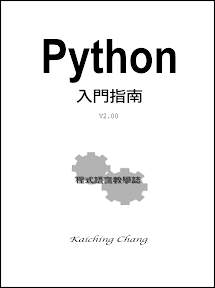
select_demo.py
print()
if 3 > 5:
print("Oh! 3 is bigger than 5!")
elif 4 > 5:
print("Oh! 4 is bigger than 5!")
elif 5 > 5:
print("Oh! 5 is bigger than 5!")
elif 6 > 5:
print("Of course! 6 is bigger than 5!")
else:
print("There is no case :(")
print()
# 檔名: select_demo.py
# 作者: Kaiching Chang
# 時間: July, 2014select_demo2.py
print()
s = 6
if s == 3:
print("3...")
elif s == 4:
print("4...")
elif s == 5:
print("5...")
elif s == 6:
print("6...")
else:
print("There is no case :(")
print()
# 檔名: select_demo2.py
# 作者: Kaiching Chang
# 時間: July, 2014exercise0601.py
a = 3
b = 5
if a == b:
print("a == b")
else:
print("a != b")
# 檔名: exercise0601.py
# 作者: Kaiching Chang
# 時間: July, 2014exercise0602.py
a = int(input("a: "))
b = int(input("b: "))
if a == b:
print("a == b")
else:
print("a != b")
# 檔名: exercise0602.py
# 作者: Kaiching Chang
# 時間: July, 2014exercise0603.py
g = int(input("g: "))
if g < 60:
print("Bad!")
elif 60 <= g < 70:
print("Not Bad")
elif 70 <= g < 80:
print("Good!")
elif 80 <= g < 90:
print("Great!")
elif 90 <= g < 100:
print("Excellent!")
elif g == 100:
print("Perfect!")
else:
print("Pardon?")
# 檔名: exercise0603.py
# 作者: Kaiching Chang
# 時間: July, 2014the end

沒有留言:
張貼留言